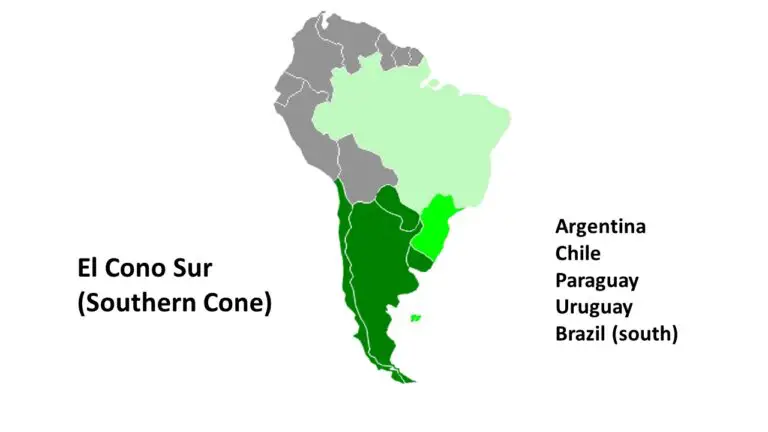The Netherlands never ranks high on lists of the best countries for TEFL. With the majority of the population fluent in English, there isn’t much demand, but for those looking for the northern European way of life, there are possibilities to earn reasonable money. Here’s what I’ve found about what kind of salary you can expect.
New/Inexperienced TEFL teachers in the Netherlands typically earn €1,500-2,300 ($1,700-2,600) per month. Competition is high and demand is low. Qualifications and experience beyond a TEFL certificate are often required, meaning the country is a challenging place to start out. Private classes range from €15-30 ($17-34) per hour.
Because of the limited opportunities for TEFL teachers, it’s important to know exactly what kinds of jobs you can get and what requirements you might need to fulfill.

Searching for the perfect TEFL destination with the best earnings? Compare countries around the world with my free resource: How Much Do TEFL & TESL Teachers Make? Countries compared.
Options and earnings for TEFL teachers in the Netherlands
A new/inexperienced TEFL teacher can find employment in language academies or as a freelancer giving private classes (if they can get a work permit). Teachers with a few years under their belts can find work in private schools. For this, it usually helps to have a post-graduate certificate/diploma of education, although not always.
| Earnings Source | Per Hour (€) | Hours Per Week | Per Month (€) | Annual Estimate (€) |
|---|---|---|---|---|
| Private Schools | 21-41 | 30-40 | 3,000-5,800 | 36,000-70,000 |
| Language Academies | 11-17 | 30-40 | 1,500-2,300 | 18,000-27,600 |
| Private Classes | 15-30 | 20 | 1,200-2,400 | 14,400-28,800 |
The cost of living in the Netherlands is high. Compared to Mediterranean countries and most of Asia, it’s much more expensive. However, as with all places, it depends on the lifestyle you lead.
Monthly costs are in the region of €1,000-2,000 ($1,100-2,200). The lower end of the range is for frugal living in towns and smaller cities, while the upper end is expected for living in Amsterdam or the Hague.
If you’re looking for great value TEFL certificates, I recommend International TEFL and TESOL Training. Click the link for 15% off all courses (I receive compensation, so you’re supporting me, too). Not convinced? Read why I’d choose ITTT over other TEFL course providers.
You also have to consider tax. The Netherlands has high tax rates (37.1% for low-middle incomes) which is a massive chunk of your earnings. There is a €2,837 tax credit, which will reduce how much you pay. Even so, a salary of €20,000 will still be liable for around €4,500 in tax annually.

Work permits are an issue for non-EU nationals hoping to work self-employed. There is a points-based system which takes into account personal experience, business performance and value to the Netherlands. A new TEFL teacher is unlikely to meet the criteria. Unless you have EU nationality, one of the other options is more realistic.
Language academies in the Netherlands
This is the only feasible option for most TEFL teachers. Berlitz is a major company with branches across the world, including the Netherlands. They’re a company with a decent reputation, although I’ve heard mixed reviews of working with them.
There are a number of smaller companies in the country, too. Finding one that’s right for you might take time, and you’ll have to consider location – most will be in the major cities like Amsterdam, where living costs are higher.
For the first year or two, you may have to live frugally on the salary from a language academy. With monthly earnings at around €1,500-2,300 before tax, this won’t give you much leeway with living costs between €1,000-2,000 a month.
The benefits of these academies is you can get a work permit and a regular salary. The disadvantages include potentially irregular working hours, not much time for lesson prep, and low pay.
Private classes in the Netherlands
For those who have a work permit to go self-employed, or anyone looking to supplement their income from a language academy, private classes are flexible and lucrative.
Hourly rates range from €15-30 ($17-34). I would say any native speaker, no matter how much experience, could comfortably charge €20 per hour in one of the major cities. Demand isn’t huge, as most people are already fluent, but there are definitely students who want to learn specific business English, or need support at school.

Working just 3 hours of private classes a week at €20/hour would earn €240 extra per month (assuming 4 weeks in a month). This can make the difference between living comfortably and struggling to survive.
One major drawback of private classes is their unpredictability. You don’t have a fixed contract, and students can cancel, leaving you out of pocket. But if you go about it the right way, it’s a fun, easy earner.
If you’re hoping to begin private classes, make sure to read my guide How to Get Started as an EFL/ESL Private Tutor.
Private schools in the Netherlands
Finding reliable salary data for private schools in the Netherlands has proven challenging. I have struggled to get much information from sites like Glassdoor, but with some extra digging I’ve found annual salaries can range anywhere from €36,000 ($40,000) to as high as €70,000 ($79,000). That’s €3,000-5,800 ($3,400-6,500) a month.
In general, school teachers are paid well. The downside of private schools is the requirements; a post-graduate teaching diploma/certificate is often required, as well as a few years of experience.
This might not always be the case, but schools who don’t demand much won’t pay much either.
Conclusion
TEFL teaching in the Netherlands isn’t easy financially. I would only recommend it to those who have personal connections to the country and don’t want to live elsewhere.

The lack of opportunities, steep tax rates, and high cost of living mean anyone who doesn’t have lots of qualifications and experience will struggle to make ends meet, especially if living in Amsterdam or the Hague is a priority.
Also, if one of the reasons for teaching abroad is to learn a new language, there are better places to go. While Dutch is an interesting language, there’s a reason nobody learns it outside the country, and a reason why English is such an important part of their school curriculum.
If the Netherlands doesn’t seem like a good fit for you, check out my article on Spain – How Much Money Do TEFL Teachers Make in Spain?
Why not head over to my resource: How Much Do TEFL & TESL Teachers Make? Countries compared to see what countries around the world can offer?







